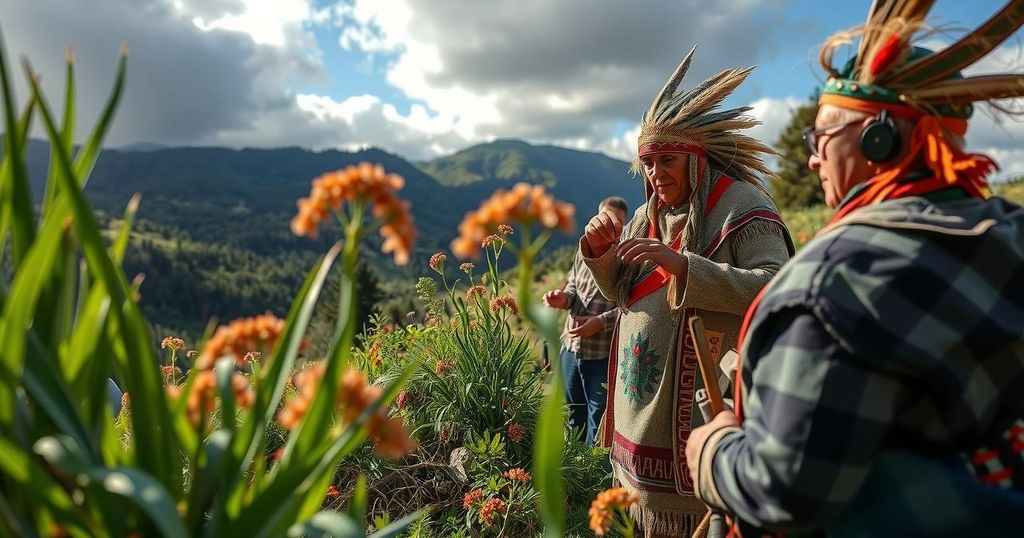Professor Danielle Touma collaborates with the Karuk Tribe in California to address climate change impacts such as wildfires. By combining scientific modeling with traditional ecological knowledge, this partnership aims to create a framework for the tribe to better understand and manage climate risks to their land and heritage.
Danielle Touma, a research professor specializing in Earth’s climatic changes, is working closely with the Karuk Tribe of Northern California to prepare for climate challenges such as increased wildfire risk. Having transitioned from the National Center for Atmospheric Research, where she modeled climate threats, Touma aims to integrate contemporary science with the tribe’s traditional ecological knowledge. Through the development of a climate projection framework, she seeks to enable the Karuk Tribe to quantify and manage their environmental risks, thereby preserving their cultural and natural heritage.
As a Lebanese native who experienced drought in her youth, Touma’s passion for understanding water resources forms the cornerstone of her academic career. She now applies her expertise in climate extremes to assist tribal communities, acknowledging their rich history of land stewardship and familiarity with ecological dynamics. By fostering collaboration between modern scientists and Indigenous populations, she hopes to create a model for future research initiatives that address the urgent needs posed by climate change.
The Karuk Tribe, located in Northern California, faces significant threats from climate change, particularly in the form of wildfires and changes to traditional food sources. The tribe, known for its deep-rooted cultural practices closely tied to the land, has been disproportionately impacted by climate events. Recent years have seen a dramatic increase in large-scale wildfires in California, prompting urgent action among scientists and Indigenous communities to collaboratively address these challenges. Recent initiatives aim to integrate traditional ecological knowledge with scientific understanding, fostering resilience and adaptive strategies.
In summary, Professor Danielle Touma’s collaborative initiative with the Karuk Tribe represents a significant effort to bridge modern science and Indigenous knowledge. By developing a climate projection framework, she seeks to empower the tribe to manage environmental risks effectively. This partnership not only aims to mitigate the impacts of climate change on the Karuk’s cultural practices and livelihoods but also sets a precedent for future collaborations between scientists and Indigenous communities to address pressing climate challenges.
Original Source: thestoryexchange.org






